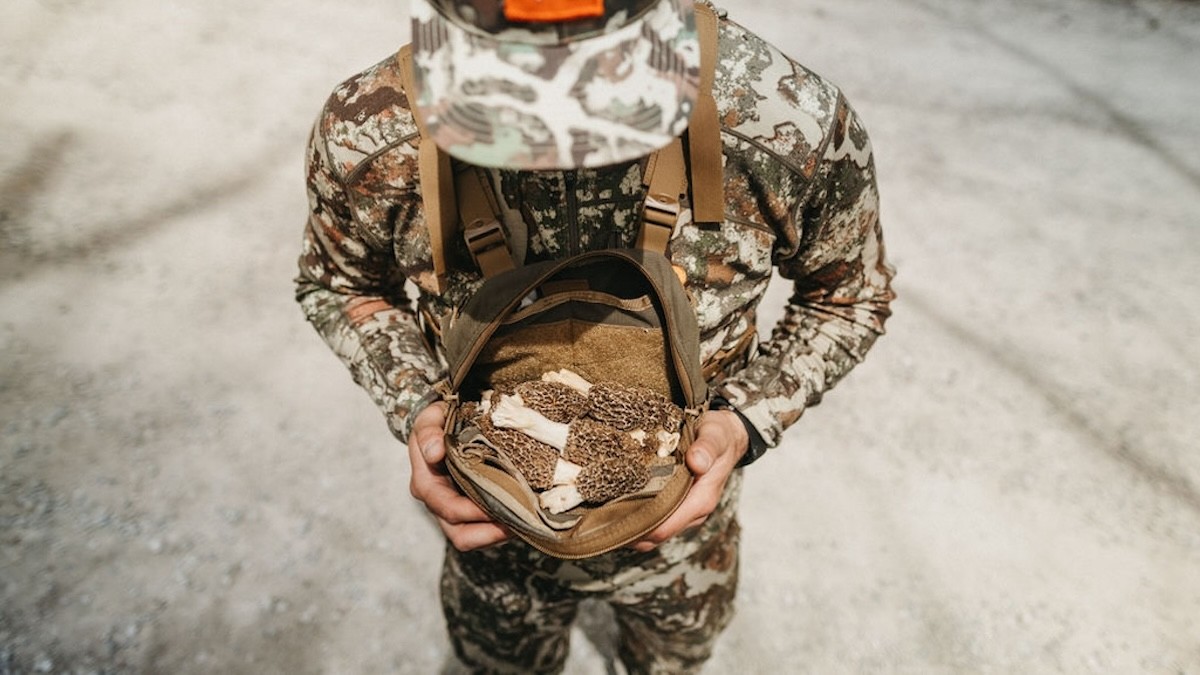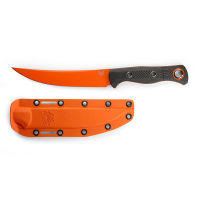
About a year ago, on April 17, 2023, Dave’s Sushi in Bozeman, Montana, featured a special sushi roll comprised of morel mushrooms and salmon. The morels in that roll, according to a recently released CDC report, resulted in a foodborne illness that affected 51 customers, hospitalized three, and left two people dead.
Now, those unfamiliar might jump to the conclusion that a sushi establishment named after someone called “Dave” is an immediate red flag. (And that you might expect foodborne illness in a sushi joint that sounds like a mechanic shop.) But those familiar know that Dave’s is a local legend. It’s clean, always busy, and has some of the best sushi you can get in a landlocked state like Montana.
So what went wrong?
Cultivated Morels
The morels weren’t foraged but instead were cultivated in China and distributed out of California. However, the Centers for Disease Control (CDC) investigated six restaurants in California that received morel mushrooms from the same supplier during the same timeframe, and none reported any customer complaints of gastrointestinal illness. These restaurants also reported cooking, sautéing, or otherwise thoroughly heating the mushrooms before serving.
According to a Montana Department of Public Health and Human Services Press Release, “DNA sequencing was performed on the morel mushroom samples, and identified the species as Morchella sextelata, a type of true morel. Samples of morel mushrooms collected from the restaurant were also screened for pesticides, heavy metals, bacterial toxins, and pathogens. No significant findings were identified.”
The salmon in the special roll was also sampled and tested, but no pathogens or other illness-causing factors were identified in the fish.
How Were the Morels Prepared?
According to the CDC, the morel mushrooms in the special roll weren’t cooked—they were marinated in a cold sauce and placed in the roll raw.
One of Washington State University’s basic tips for getting started with safe mushroom hunting is to “always cook mushrooms thoroughly before eating.” This is 101-level stuff for foragers. But probably not something that you stop to consider as a customer in a restaurant—a certain level of faith is placed in the kitchen staff to cook food responsibly.
Yes, eating raw fish does come with risks. The National Institute of Health (NIH) describes these as “possible chemical and biological hazards.” So, you could say that sushi-eaters are risk-takers to begin with. That being said, people eat sushi every day without hospitalization. It’s the responsibility of chefs to understand best practices of food preparation to mitigate the risk of disease transmission.
Don’t Eat Uncooked Morels
The gastrointestinal illness that resulted from undercooking the mushrooms was severe, to say the least.
“The onset of gastrointestinal symptoms was rapid, with a median symptom onset of 1 hour after the restaurant meal,” the CDC said. “Vomiting and diarrhea were reportedly profuse, and hospitalized patients had clinical evidence of dehydration. The two patients who died had chronic underlying medical conditions that might have affected their ability to tolerate massive fluid loss.”
These weren’t “false morels” (which you should NOT CONSUME), and they didn’t have any other funny business going on. Other restaurants that served the same morels (except they were cooked) experienced no disease outbreaks. These findings led investigators to determine that the cause of the outbreak was most likely due to eating undercooked mushrooms which can contain toxins that are difficult to test for.
The investigation also confirmed a dose-response with eating raw morels. So, the more pieces of the special sushi roll a patient ate, the more serious their illness was.
Since the incident, the US Food and Drug Administration (FDA) has updated its recommendations regarding eating morels: “Consumers should eat morel and other wild-type mushrooms at their own risk. Properly preparing and cooking morel mushrooms can reduce risk of illness, however, there is no guarantee of safety even if cooking steps are taken prior to consumption.”
Dave’s reopened on May 25 after being shut down for the investigation once it was determined that the public health concern was mitigated. They did receive multiple violations from the health department and four lawsuits—two of which are wrongful death cases filed by family members of the deceased.
“We first want to acknowledge the Ventura and Lewis families and the passing of their loved ones. This is an unthinkable tragedy. We hope that no other families, friends, and communities will experience the loss of someone they love as a result of eating morel mushrooms,” Dave’s Sushi told The Bozeman Daily Chronicle. “As a result of the unknowns and uncertainties, we will never serve morel mushrooms again.”
How to Avoid Illness When Foraging Mushrooms
Foraging, like most outdoor pursuits, always comes with a little risk, but that doesn’t mean that you can’t safely enjoy foraging this spring.
When you’re mushroom hunting, it's crucial that you learn to confidently identify the mushrooms you’re targeting as well as poisonous lookalikes. If you’re new to foraging, find someone to go with who has experience and knowledge—it can be murky water to navigate solely by guidebooks and online expertise.
Once you’ve collected a bounty, you should clean your mushrooms. Always eat foraged mushrooms in moderation, even when you’re confident with the identification.
And, as this unfortunate case of foodborne illness has clearly illustrated, always thoroughly cook your foraged fungi.
If, for some reason, you find yourself attracted to the idea of morel sashimi or ceviche—please, for your sake and the sake of your diners—keep the raw eats to fish. Or venison! If you want to mix things up. You can even serve it up with this morel chili crisp recipe to bring some umami mushroom magic to your dish (without the sickness).
Check out these recipes for morel cooking success this spring: Sauteéd Morel Mushrooms, Morel Mushroom Arancini, and How to Cook with Dried Morels.






